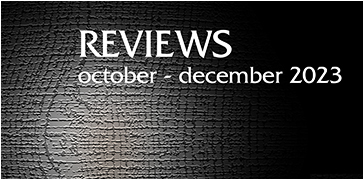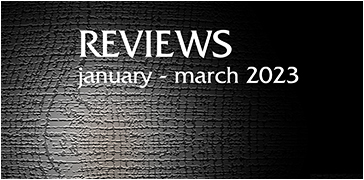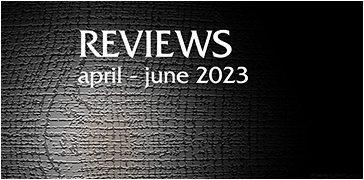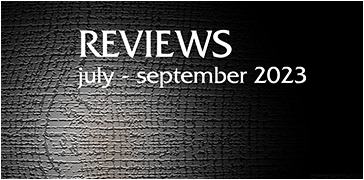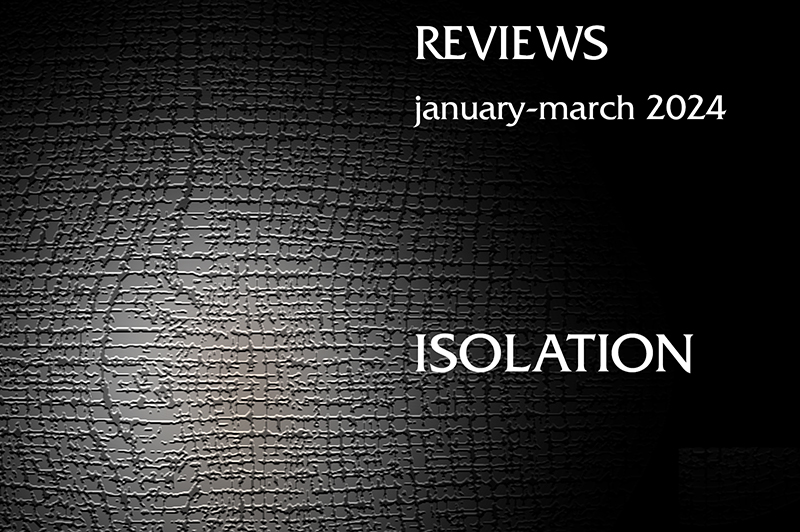
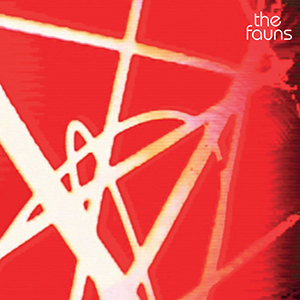
The Fauns - How Lost
Invada
Released: 19th January 2024
In the fallow decade the shape of the band changed with guitarists Elliot Guise and Lee Woods jumping ship which was a huge loss as their playing on Lights reached supreme highs and their presence on stage was both thrilling and dramatic. How Lost doesn't attempt to replace these dominant guitars but reverts instead to the use of keyboards with the nine songs included dancing along to a show of pulsating electronica. No doubt some of this change can be attributed to the addition of soundtrack composer Will Slater to the band, joining bassist/songwriter Michael Savage, vocalist Alison Garner and drummer Guy Davies. In truth, such a move would generally be our worst nightmare, but for The Fauns, it really seems to work.
Though the music bubbles and pops and the lyrics appear less introverted than previously, every song sounds just like The Fauns. And The Fauns always sound lush and beguiling. In part this is due to Garner's fabulous vocals. She has a voice that enthrals and delights, sensual half-whispers that are quite unmistakeable. Insubstantial as they may appear they root these songs into the dream reality in which The Fauns have always dwelt. Then there's the unerring talent of Savage to capture a melody and make it sound the finest thing on earth. The two combine to make this album into yet another treasure. If The Fauns moved on to death metal, you can bet your life it would still sound like The Fauns and be ludicrously appealling.
So whether it is the deliberately lightweight 'Doot Doot' or the pressing urgency of the title track, everything is Faunsy and well. There's even an attempt to reboot the band's finest moment, '4am', in the gorgeous 'Afterburner', which works brilliantly. The original should have been a single that topped the charts for at least seventeen months so we can see why the band were keen to try and recapture its magic. Much as we would love some crashing guitars to break through these songs, there's not really a downside to this collection which will stand as thing of beauty in its own right until the fourth album comes out when we will all be approaching ninety. In the meantime, buy this and wallow in its gorgeous embrace.
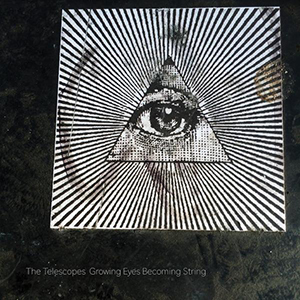
The Telescopes - Growing Eyes Becoming String
Fuzz Club
Released: 9th February 2024With the project being resurrected when back-up recordings were recently discovered, it may be a surprise to hear that many of the songs echo the band's recent sound, yet Lawrie has an explanation for this. "I guess it sounds current because I finalised the lyrics and wrote the lead guitar parts in lockdown. When the basic tracks were recorded I'd play the rhythm guitar and hum loose melodies, giving everyone the nod when it was time to go up or down. Within that framework there was room for the band to get from A to B by their own means. So that was controlled improvisation in a way."
With One Unique Signal providing the backing tracks it is no surprise that they are all built upon clean, repetitive rhythms. On top of these are draped layers of sound that give the music the textures that in turn give it life. From shallow folds to deep gouges the surface is never smooth and the listener is challenged to find out just where amongst these layers it is safest to listen. We all know that repetition lulls the brain into a false sense of security and makes it anticipate what lies ahead so a change in direction, however slight, can cause alienation or euphoria. You have to immerse yourself in the music of The Telescopes to discover the safest paths and the sweetest rides. It's never easy listening, but always rewarding.
Opener 'Vanishing Lines' sums up the whole process of these recordings, being about "going in blind, the journey, the sessions – everything had that common thread to it." Despite the distortion and growling guitars in the background, the song sounds cleaner than Lawrie's more contemporary recordings, perhaps not so mired in desperation following a challenging decade. He sings gently and clearly and his guitar solo is simply astounding, broken yet eloquent. It is these sounds that we could listen to for eternity. Closing track 'There Is No Shore' tackles the same theme. It's clearly a song that means a lot to Lawrie as the band ended their sets with it when touring Experimental Health and Of Tomorrow last year. '(In The) Hidden Fields' is all alienation. Lawrie is not feeling at home in the world and is being consumed, "found in the loss we find we lose ourselves in." It was a lyric written at the time of recording and is a theme that will be familiar to all who follow the band. 'Dead Head Lights' is a death march, Lawrie's vocal barely alive. Again written at the time, the story concerns "a guy we knew who was trying to get in with us as our manager but he tried divide and conquer and we got wise. He dragged me into addiction for a while, he’d get me off my face, then drive me to meet the strangest people, all high up in the music industry. He would drive down country lanes at breakneck speeds then kill the headlights before each sharp turn. I was screaming inside but made no sound. This was around the time of 'Precious Little'." The excoriating guitars sound as if they are trying to scratch a memory out of existence. 'We Carry Along', the shortest of the seven tracks on the album, was written in solidarity for a friend experiencing mental health issues. Tellingly, it breaks down in the last forty seconds before dropping into silence.
The Leeds side of the record opens with the creeping menace of 'Get Out Of Me', an incantation to dispel corruption. It sways with anticipation and rings with power, yet is almost bitter at the knowledge of its inevitable failure. There's a scream of helplessness which is affecting and not a little disturbing though there is more hope in 'What You Love' which is a mantra to help overcome imaginary restraints. "I could write love songs all day but there are a lot of them about which kind of trivialises the idea in a way, makes it feel too obvious as a subject matter. I wrote that song to get past that mental block as there is nothing trivial about love. It’s an incredibly deep subject matter. The simplest of things can often be the most profound."
Growing Eyes Becoming String is an oddity in The Telescopes' catalogue as it fits snugly into two eras. It shows that with Stephen Lawrie nothing changes, yet everything changes. There is no standing still yet he is ever battling with eternal constants. New paths may lead to new perspectives yet problems seen through different eyes remain problems. If you could think your way through the trials of life no artist would have achieved that more comprehensively, but nobody has worked out a way to do that. It's why philosophers go mad. But when Lawrie tries, at least he leaves his workings out. And inevitably they sound fantastic.
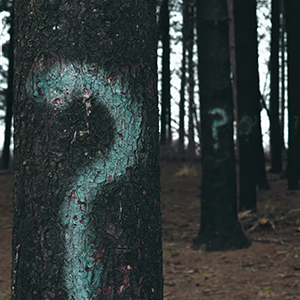
Psychic Lemon - The Unheimlich Kingdom
Drone Rock
Released: 29th February 2024
As you would suspect, this is no collection of jolly tunes to welcome the return of live and recorded sounds, but a powerful assembly that is as dark as any of their sessions, with some crushing tunes and highly infectious repetitive rhythms. Psychic Lemon relate the tale of emerging from the hell of the plague to finding themselves in the hell of a sick society. "Disorder and decay our daily fare. Long shadows cast their cold grip over the land, darkened even more by the terror of flaming brutalisms that rise high in the sky. A cruel austere hand chokes the life-breath of public services and plunges a knife into the heart of kindness. Estranged from the familiar, we shouldn’t be here. We are Unwelcome. We have been downgraded and degraded. Our banks are filled with other people’s food and our minds polluted with poison. Our expectations have been downsized. As we stare out of the window, horror fictions transform into reality. Let the bodies pile high and the land sink into the sea." Such is their description of their new music.
'Trepanning For Gold' opens to Andy Briston's racheting guitar, a big riff buried within a bludgeoning sound that is thumped into place by Martin Law's huge drums. "Trepanning" is the process of drilling into the human skull which is about right, especially with the volume raised high. This is uncompromising stuff and simply gets heavier as it rages, with layers of sound thrown on top of each other, each desperately fighting for breath. It's a strange fact that guitars sound increasingly mesmerising as they are dragged to the extremes, and this opener holds you in its grip for seven long minutes. 'Cognitive Dissidents' is just as heavy, Law plotting the way, while guitars simply swell and wail in painful ecstasy. It's huge and deadly and quite brilliant. 'National Psycho Geographic' works around intricate rhythms, guitars dipping into whatever gaps they can find as the music surges and overwhelms. And that's it other than for the album's title track that expires just before twenty-one minutes have elapsed. It's a very different beast compared to its three lairy companions, not so much exploding in your face but worrying the life out of you. The guitars are tense and uncertain, the drums just unsettling enough to prevent the mood from calming. It's no easy thing to maintain a troubled edge for the whole side of a record, but Psychic Lemon are masters of that particular art.
When they are at ease Psychic Lemon sound like a maelstrom of fury. Here they are not at ease and the damage this record will cause is immense. Embrace the agony. As always, the band have recorded, engineered, produced and mastered this record themselves, so there is nobody else to blame. It will be available on vinyl, cassette, CD and download from the band's Bandcamp or from the Drone Rock Records' website. Grab one or it will hunt you down.

Cranes - Fuse
Dadaphonic
Released: 5th April 2024
For those of us who heard the band in the early days and snapped up the 1986 cassette, it is almost bewildering to see these songs being remastered at Abbey Road (no less) some thirty-eight years later and being reissued in such a beautiful vinyl and CD package, with superb artwork from V23's Chris Bigg. The seven original tracks have been complemented by the addition of 'New Liberty', an outtake from the Self-Non-Self sessions, and they sound enormous. Having originally bought two cassettes, we sold one a few years ago and then stopped playing the other one when it came to be regarded as gold dust. This means it is some years since we last heard these songs, all of which have been virtually hidden for decades, bar the title track which reappeared on Self-Non-Self three years later.
And they deserve to be heard. The music Cranes produce absolutely captures your soul. For us it is life how it should be lived trapped in sound, full of fury and light and anger and regret and darkness and passion and tears and every bloody thing else. No other band affects us in the same way and no other band ever will. From the ominous opening to 'Pillow Panther' it is clear different forces are at work. Alison howls in the background as a rattling rhythm and disturbing bass create the tension. A guitar scrapes gently and a big drum punches out. It sets the scene marvellously well for a record that damages more effectively as it runs out. 'Fuse' is punchy and dark, Alison's vocal rising and falling, challenging itself, being built up in layers until it becomes a whirlpool. 'Valentine' whispers through a world of metal, the vocal almost buried. It fades in less than two minutes for broken guitars to introduce 'Gas-Ring' which is distant and unfocussed, the vocals little more than overlapping cries for help. Side two begins with the splintered 'Things That I Like' which almost spits contempt as Alison's brilliant vocal glides though the shards. The power of Cranes became their ability to balance the brutal with touching frailty and the roots of that future success are clearly heard here. 'Wrench' is even more broken, muffled and crushed, while closing track (of the original album) 'Fracture' is almost dismissive of shape and form. It is dragged to every corner, always hypnotic, always hurting, and absolutely gripping. Additional track 'New Liberty' is more identifiably the Cranes we came to know and love. Musically it has the feel of early Birthday Party, with quite gorgeous splintered guitars stabbing at the big rhythm track, Alison's voice capturing the tones that would dominate on the next few albums.
It is fantastic that these songs have become available again so they can be enjoyed by those who discovered the band in their later days, or those youngsters who have yet to hear them. No doubt many who investigate will be just as overwhelmed and trapped as we were all those years ago. Dadaphonic have only released the vinyl and CD versions in limited numbers so be sure to grab a copy before they disappear. It is pretty certain these will become the gold dust of the future.
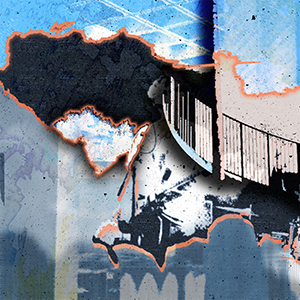
Oliver Beardmore - Swimming In The Light Of A Cold Star
Same
Released: 19th April 2024
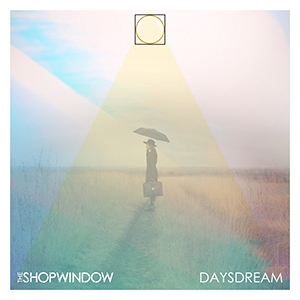
The Shop Window - Daysdream
Jangleshop
Released: 3rd May 2024
If you have listened to The Shop Window before, you will realise that their music is very far from the shambolic (but fantastic) punk rushes of some of the original jangle bands; it is highly refined guitar music that is well thought out and structured and simply sings. They also have an innate understanding that the greatest music in this field sounds like the summer but fixates on disappointment and despair. At the very least it is wistful; occasionally a love song is allowed as long as you know at heart that any love returned is undeserved and ultimately will be revelead to be a cruel joke. Soundwise here we sway from the Byrdsian 'Live To Love & Love Your Life' and 'Blues' which simply chime, to the surely Razorcuts-inspired 'See Another Day' which fantastically adopts that band's vague air of disappointment. Chuck in a sprinkling of Beach Boys, some horns and exposed emotional fragility and it's pretty much the perfect package.
The second disc is not so far removed from the first; though it walks a slightly different path, guitars still sing and melody reigns. There's a dreamier air to 'Who's In Control?' which shimmers gently, while the lively 'Monochrome' and thoughtful 'Happy Now' are lightly brushed with psychedelia. Around the edges the keyboards hint at Slowdive or Spiritualized, yet the vocal approach remains the same, even sounding jaunty on closer 'Made In Heaven'. It's a gentle juxtaposition; the whole album is an experiment in capturing nuances and giving them depth. It's difficult enough to express contrasting emotions let alone differing shades of harmonious ones. Carl Mann and his crew succeed admirably in doing just that and with the band's main man writing, producing, mixing and mastering, this is no small achievement. The sun came out today: the perfect weather for the clatter of guitars and the death of hope ...


Miki Berenyi - Fingers Crossed
Nine Eight Books
Melanie C - Who I Am
Headline Welbeck
Melanie Chisholm’s book comes from a different planet. It is not as gripping as Berenyi’s, but readable enough and it certainly wasn’t a struggle to plough through the pages. Unlike Finger’s Crossed, we are kept at a distance as it is the bigger picture that is important. There is no talk about sex in its 400+ pages and little of the intimacy that Berenyi naturally reveals. There’s not a bad word said about anybody and the overriding feeling you get from the book is that Mel C is actually an extremely likeable person. Set in the big world of the mainstream, a lot of the background is alienating for us: getting excited about music acts we wouldn’t cross the road for, having an admiration for celebrity which leads to an unhealthy trust in characters most of us would leave on the doorstep, and having a very naive belief that the Spice Girls were in control of their destiny when it is quite apparent that they really weren’t, despite them on occasion saying no. Mel talks a lot about the pressures of fame, which were obviously immense, and the eating disorders from which she suffered as a result. There was nothing that threatened her life, but much that altered it, and again her reactions could be traced to her middle class childhood where she was a product of a “broken home” (a rarity for the day) where she saw her perfect world broken up in front of her. She emphasises the camaraderie of the band despite the fact she had to alter her natural behaviour constantly in terror of facing her bandmates' displeasure. This warmth hasn’t always been echoed by other Spices in their autobiographies, but Mel is clearly empathetic and forgiving and has a lot of room in her heart. For us, such a career in the spotlight comes across as a vision of hell, but fame is a huge drug and no doubt it has it ups as well its massively obvious downs.
